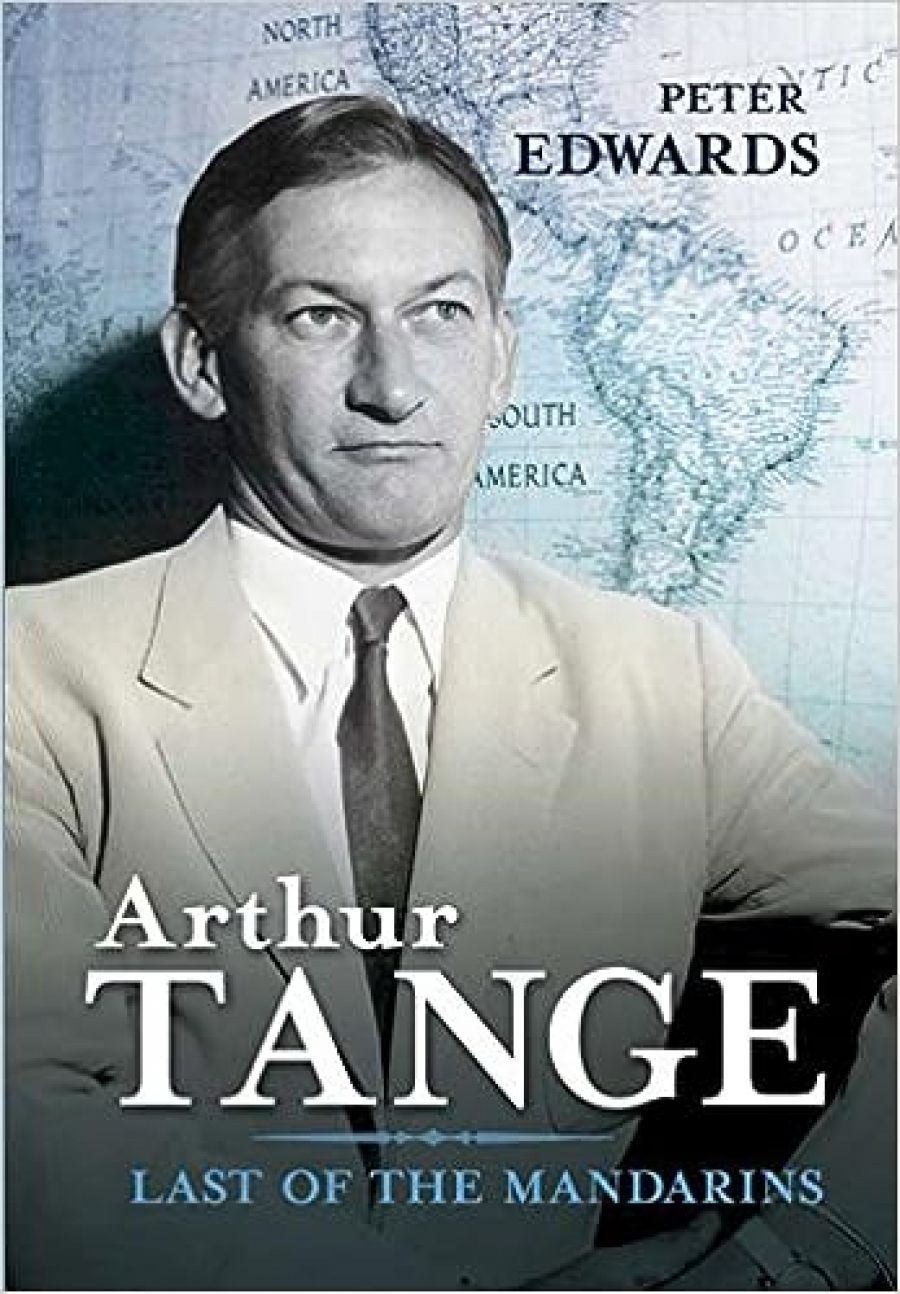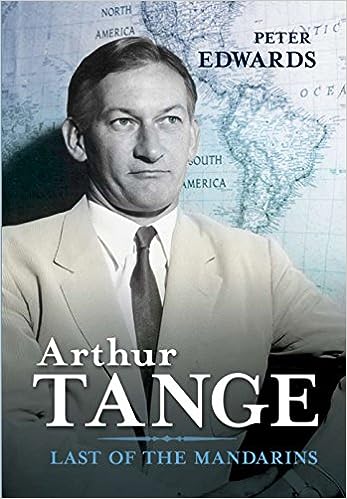
- Free Article: No
- Contents Category: Biography
- Review Article: Yes
- Article Title: The personal factor
- Online Only: No
- Custom Highlight Text:
Arthur Tange joined the Commonwealth Public Service in 1942, at a point in time when it was undergoing ‘a permanent revolution at once in the size, the calibre, the philosophy and the significance’ of what it was and what it did. Most Australians now forget, if they ever knew, just how limited the function and reach of federal government was in the first decades of the Commonwealth. As in so many areas of national life, World War II wrought a profound transformation in virtually all aspects of central government and public administration, and the young Tange was in at the beginning of the process. As Sir Arthur Tange, Secretary of External/Foreign Affairs and Defence successively from the 1950s to the late 1970s, he did more in turn to shape the formulation and execution of policy in these two areas than any other official, and many ministers, of his time.
- Book 1 Title: Arthur Tange
- Book 1 Subtitle: Last of the Mandarins
- Book 1 Biblio: Allen & Unwin, $49.95 hb, 351 pp
- Book 1 Cover Small (400 x 600):

Most Australians will never have heard of him, something that, as Peter Edwards points out, is a commonplace for senior public servants in general, and those of Tange’s generation in particular. He was very much a public-service identity in his day, and it would be a pity if this book were thought to appeal only to what the Americans would term ‘policy wonks’. It deals with much more than that.
While Edwards’s book unquestionably examines the issues from a perspective located behind Tange’s desk – and has benefited from access to his papers and lengthy discussions with its subject before his death in 2001 – it actively engages with those issues that engaged Tange through his many decades of senior public service. Never content merely to recount Tange’s views or decisions in isolation, Edwards presents the major themes and challenges of national security, broadly defined, as these confronted successive Australian governments throughout the Cold War, and the difficult and often violent process of Western decolonisation in Asia.
Edwards is also willing and able to argue with accepted mythology concerning Tange’s alleged involvement in such contentious matters as Malcolm Fraser’s resignation as minister for defence (on which he has new light to shed), Pine Gap and the relationship with the US intelligence bureaucracies, the Indonesian invasion of East Timor in 1975, and claims about a putative ‘coup’ planned in the context of the dismissal of the Whitlam government. Those wedded to a conspiratorial view of these matters will likely remain unpersuaded; others may conclude that the arguments offered and the evidence weighed here provide at the least a basis for considered reflection on matters that are now, increasingly firmly, history rather than headlines.
The core of the book, and of Tange’s career, is provided by his periods running External/Foreign Affairs and Defence. In both positions, he was very much a reformer and improver. The External Affairs department that he came to head in 1953 was held in low regard by government and other areas of the public service, with some justification. Tange professionalised it, and improved both its standing and its clout through the provision of sound advice and sound policy. He subsequently revolutionised Defence; the ‘Tange era’ still resonates within its confines.
This is the book’s chief virtue – it lays bare the processes of policy formulation and decision-making at the very highest levels with some understanding of the results, both of what happened and why, and with regard to the consequences. It also dissects the relationships between senior public servants and the interaction with ministers, prime ministers and others at the political level. The 1960s and 1970s were a turbulent period, inside government as well as outside, and Tange enjoyed excellent relationships with some ministers, difficult or hostile ones with others. The personal factor was, and remains, critical to understanding the workings of government at the highest levels.
Tange is probably best remembered at this personal level by those who knew him least well. His reputation as a demanding, irascible, difficult and even bullying senior official was sometimes deserved. Special pleading aside – and Edwards does not indulge in any – he did not suffer fools at all and made no effort to hide it. Being ‘a nice man’ is not generally a qualification for senior office (though it may certainly assist the occupant). Those he worked for, and many of those who worked for him, valued the dedication, the breadth of intellect, the willingness to stick to his guns, and the absolute conviction that he was ultimately a servant of government, and of good government.
This book deserves a wide readership, and one hopes it receives it. I understand that its availability is rather limited, and that many bookshops have found it difficult to get copies in. This is a pity, because, along with David Horner’s biography of Tange’s predecessor at Defence, Sir Frederick Shedden (2000), we now have serious and concerted studies of the machinery of national security policy across two-thirds of the twentieth century. Tange believed that an understanding of history could inform good decision-making. The raw materials are here provided.


Comments powered by CComment